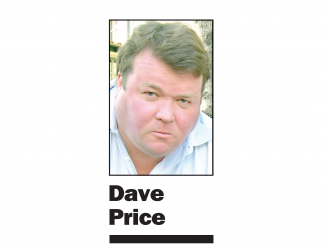
BY EMILY MIBACH
Daily Post Staff Writer
Palo Alto City Council last night (Aug. 10) approved extending the street closures of University and California avenues until the end of the year to help restaurants expand outdoors. But some businesses are worried they will have to close up shop anyway.
“We are all going out of business anyways. This opportunity has been really great and we seeing a 30-40% increase in business since shelter-in-place started. But at the end of the day, it’s not always going to be good enough,” said Jordan Nari, who represents Wahlburgers, Rangoon Ruby and Burma Ruby.
Nari, along with other restaurant owners, thanked the council for making a quick decision to close California and University avenues, but some pointed out that non-restaurants are not benefitting as much as the restaurants are.
In an attempt to help out businesses further, Mayor Adrian Fine floated the idea of businesses placing a “COVID relief” surcharge on meals. The surcharge would appear on the bill, and restaurants would keep the money.
“You get a $10 pizza, and they have a 10% surcharge, then the business will keep the extra $1,” Fine explained to the rest of council.
City Attorney Molly Stump said the council could support businesses imposing their own surcharge, but the businesses would have to decide what to do. The only role for the city would be to endorse the surcharge, she said. It wouldn’t be a tax that the city collects.
Fine said business owners and residents had brought up the idea of a surcharge.
Councilwoman Liz Kniss noted how dire things are for restaurants. Before the pandemic, Palo Alto had a daytime population of about 150,000 people, and those people went to the city’s restaurants for lunch. Now the offices are empty and the restaurants have to rely on the city’s 67,000 residents for business.
The owners of Taverna at 800 Emerson St., Thanasis Pashalidis and Hakan Bala, asked the council to figure out what to do when the colder weather arrives. Wednesday was the coldest its been since they were able to have outdoor dining, and they said their number of diners dropped.
Judy Kleinberg, president of the Palo Alto Chamber of Commerce, said she’d like to see the city work on ways to increase business to the restaurants and shops on the side streets off of California and University avenues. She said she’d also like the city come up with a plan to help retailers.
“We haven’t heard any better strategy compared to the (street) closures, and the changes are boosting the community’s spirit,” Kleinberg said.
But some, such as restaurateur Rob Fischer and Patio owner Megan Kawkab, are not happy with the closure of University Avenue. Yesterday, Fischer sent a petition to City Manager Ed Shikada protesting the closures, saying it is unfair to businesses on side streets. He had gathered 30 to 40 signatures, Shikada said during the meeting.
Kawkab said that The Patio, at 412 Emerson St., is down 25-30% since first opening for outdoor dining during the pandemic. She suggested that the city allow every restaurant to have a parklet — where street parking spaces are replaced with an area for tables. She said that a cohesive parklet system would bring people downtown and even out the chances for all downtown restaurant, she said.
The council ultimately extended the closures of California and University avenues until the end of the year, and will allow for the parklets to remain on street parking spaces until Sept. 7, 2021.
The closure extension includes part of Ramona Street, from Hamilton Avenue to Nola at 535 Ramona St.
The council also agreed to have assistant planning director Rachael Tanner’s team work with downtown businesses to get businesses other than restaurants out on the street. Tanner will be returning to council with a plan on how to help retail.




Downtown was in trouble before Covid and outdoor seating isn’t going to change the fundamentals. Landlords raised rents too high and businesses could barely make it then. When the SIP ends, most of the stores will be empty, and there won’t be many business people willing to return and pay those high rents.
There is no such word as ‘anyways’.
Thank God there is somebody like “Boho” to correct the English of people at a public meeting. Glad to see Boho is focused on the important matters of the day.
Downtown has been in trouble because it lacks a diversity of businesses. If you want to go to dinner at a restaurant with rich food and a $30/person check, then it’s great. But if you want to visit a stationery store, a toy store, a shoe store, a book store, a moderately-priced clothing store, downtown isn’t for you. The landlords like Roxy Rapp should have known that a recession would come one day, and it would close all of the high-end businesses. I hate to say it, but downtown will be a ghost town for many years into the future until we start getting a better mix of businesses.